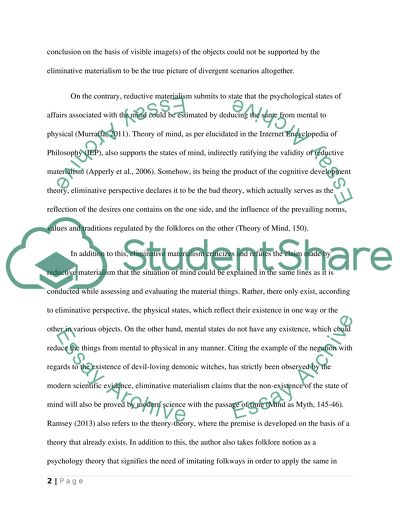Cite this document
(“Dominant Points Of The Eliminative Materialism Essay”, n.d.)
Retrieved from https://studentshare.org/philosophy/1490324-theory-of-mind-eliminative-materialism
Retrieved from https://studentshare.org/philosophy/1490324-theory-of-mind-eliminative-materialism
(Dominant Points Of The Eliminative Materialism Essay)
https://studentshare.org/philosophy/1490324-theory-of-mind-eliminative-materialism.
https://studentshare.org/philosophy/1490324-theory-of-mind-eliminative-materialism.
“Dominant Points Of The Eliminative Materialism Essay”, n.d. https://studentshare.org/philosophy/1490324-theory-of-mind-eliminative-materialism.


